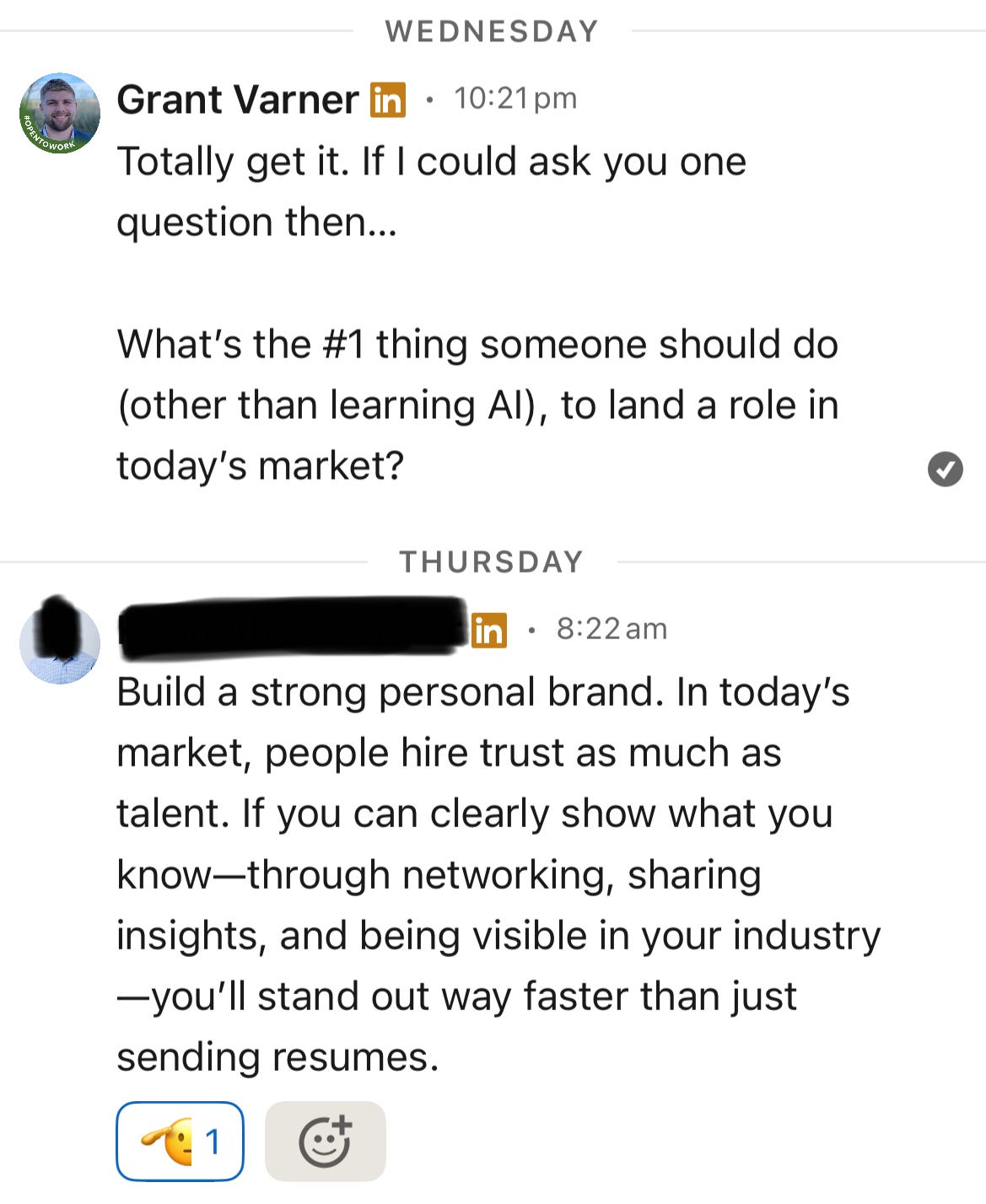The Tech Job Guide I Wish I Had
Getting into the right place at the right time.
(1) Right Place, Right Time
I recently connected with a fellow tech sales bro who remarked “Tech sales is strange. If someone with little skill can get into a company with a fantastic product, they’ll crush it.”
I graduated from an Ivy League school 6 years ago. Then worked at Oracle for 4 years before joining a scrappy startup.
Several rejections later, I realized what this guy already knew: The job itself is easy the easy part. Getting an offer at a tech company with a great product is the hard part.
Which naturally begs the question: How do you land a position with a company that’s growing like gangbusters with a great product?
(2) You Just Have To Be Smart Enough To Get A Big Tech Job
In 1921, psychologist Lewis Terman launched a decades-long study tracking over 1,000 children with IQs above 135.
The study confirmed that while high intelligence correlated with success, it wasn’t the only predictor of success.

This principle is called threshold theory, and it’s a pretty good analogy for my experience trying to land a position in big tech. Basically:
There’s a minimum IQ threshold to getting a job.
But meeting the minimum threshold doesn’t guarantee you will get the job.
As long as you meet the minimum threshold for working in big tech, the only traits left to develop is the moral values brought up by Lewis Terman: perseverance, confidence, and drive. The willingness to try, and try again, many times over. He puts it succinctly:
“There is nothing about an individual as important as his IQ, except possibly his morals.”
— Lewis Terman
So what are you to do? De-risk the hiring manager’s decision to hire you. By what means? Networking.
(3) Your Network Is Your Net Worth
To some, networking can feel Machiavellian. But it’s not… if you do it right.
Here’s an easy tip: Talk to other people about the things you care deeply about, professionally.
(i) Insert yourself into places where you can physically meet other people in your industry.1
(ii) Be genuinely curious. Ask about everything you actually care about, and want to learn.
(iii) After your conversation, thank that person. You’ll have more questions. Go back to step (i) and insert yourself into a position to ask someone else questions you care deeply about.
You’ll be surprised what you’ll find out. Just yesterday, I learned that there are a ton of different jobs in tech.
I started my career as a Solution Engineer before transitioning into sales. I had no idea there was so much out there.
The main point is this: Get good at having conversations.
(4) Specific Knowledge
One feedback I received countless times is “Ask Chat GPT what companies you should look into!”
I’m not a luddite. But I do think there’s a time and place to use AI for advice. Gathering specific knowledge is not one of them.
One thing Chat GPT is not great at, is giving a uniquely human perspective on how things are at a company. Sure, it can tell you everything about every company’s 10-k in seconds.
But can Chat GPT answer, “What’s it like working on Jane Smith’s team?” Or “What sorts of challenges are you excited to be working on now?”
(5) Level Up Your Skills
This hits home. Especially coming from Oracle Marketing Cloud, where I spent 4 years getting every certifications and deeply embedding myself into the product. Ultimately, Oracle decided to go another direction laying off 70% of their job force. This really led me to decide: What challenge do I want to take on next?
Every networking conversation will reveal a little bit more about what types of skills are in demand. As you probably know, tech is always evolving. Skills that were high demand 5 years ago probably aren’t even in the equation now.
That said, everyone probably has different advice about what skills you should level up. My recommendation: Take note of the skills/certifications that are recommended to you. But take it with a grain of salt.
Every time I was rejected from a job, I’d connect with the recruiter and all interviewers and ask: Why didn’t I get the job? What was missing?
Each conversation was a new data point that I could bring back to learn more. This is how I did it:
Decide What Skill You’ll Learn: This could either be a certification or a project. This newsletter is a project I’ve been working on to improve my writing.
Finish What You Started: The most important thing is that you decide what you want to grow in and you do it. To completion.
Shamelessly Self Promote: Your success finding a new job in tech is about product and distribution. You are the product. Shameless self promotion is distribution.
GTM With Your New Skills: Now the fun part - go out and interview with your newfound skills! If you’ve not been up to speed on in-demand skills in a while, you’ll probably get rejected from several jobs and have to to re-ask what skills you should improve several times over.
(6) Trust ≥ Talent
While posting more niche tech content related to AI and data warehouses, on my LinkedIn, I’ve had more leaders of tech companies engaging with my posts. One such was a VP of Sales—so I connected with him and reached out for advice on how I can land a position - other than learning AI.
His advice? Build a strong personal brand.
Building up a personal helps you do this because it gives you visibility beyond what a hiring manager can find out in 1-3 interviews.
Moral of the story: building a personal brand makes you trustworthy in the subject matter. Trust matters.
To make it extremely practical, just look at the job description for jobs you want. Find niche topics in that area—and post about it on your LinkedIn.
Thanks for reading.
—Grant Varner
In my experience, making the effort to meet someone in person, whether at a corporate networking event or just for coffee, creates a connection you simply don’t get through digital interactions. There’s something about sitting across from someone that’s more human than a cold DM.



